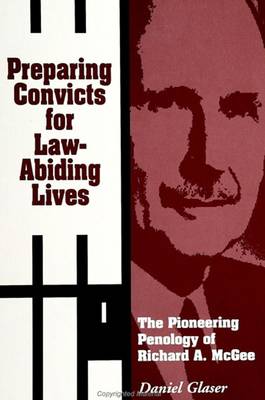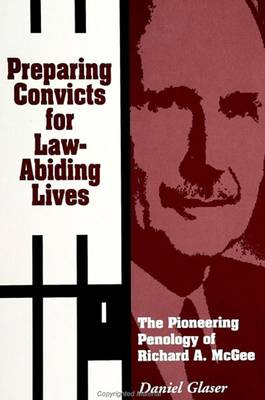
- Afhalen na 1 uur in een winkel met voorraad
- Gratis thuislevering in België vanaf € 30
- Ruim aanbod met 7 miljoen producten
- Afhalen na 1 uur in een winkel met voorraad
- Gratis thuislevering in België vanaf € 30
- Ruim aanbod met 7 miljoen producten
Omschrijving
This analysis of corrections' pioneer Richard A. McGee draws upon his many lucid writings, on comments by those who worked closely with him, and on interviews with McGee himself and others. This book interprets his efforts, accomplishments, and limitations in their historical context, yet relates them all to current possibilities and problems in crime control.
In 23 years of directing California corrections, and in his national leadership that included 16 active years following retirement, McGee promoted both reformation and control of convicts. His efforts helped make staffing prisons a non-political career service, improved inmate academic and vocational education, divided large prisons into quite autonomous smaller units, expanded treatment for drug addicts, fostered prisoner contacts with their families, and encouraged new types of counseling. He also developed more intensive supervision and assistance for both parolees and probationers. And, perhaps most importantly, he created a golden age for rigorous evaluation research in corrections, including assessment of practices by controlled experiments. He brilliantly gained both bipartisan support for these innovations and for changes in criminal laws.
Specificaties
Betrokkenen
- Auteur(s):
- Uitgeverij:
Inhoud
- Aantal bladzijden:
- 236
- Taal:
- Engels
- Reeks:
Eigenschappen
- Productcode (EAN):
- 9780791426968
- Verschijningsdatum:
- 16/11/1995
- Uitvoering:
- Paperback
- Formaat:
- Trade paperback (VS)
- Afmetingen:
- 150 mm x 227 mm
- Gewicht:
- 335 g

Alleen bij Standaard Boekhandel
Beoordelingen
We publiceren alleen reviews die voldoen aan de voorwaarden voor reviews. Bekijk onze voorwaarden voor reviews.










